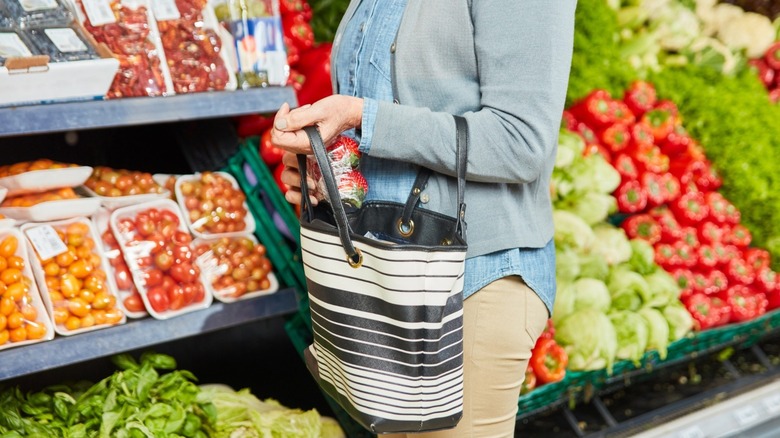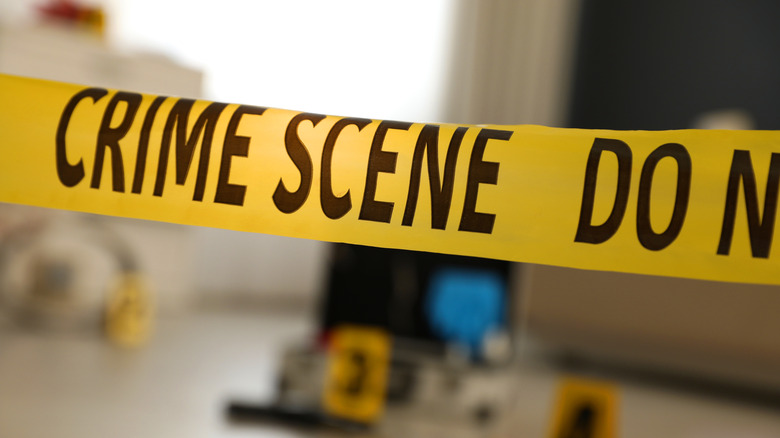The Unexpected Measures Grocery Stores Are Taking To Prevent Crime
CBS Philly warned that the closure of a Starbucks last week over safety concerns could mark the start of a Center City business exodus. Located in the heart of Philadelphia — across the street from Jefferson University Hospital, walking distance from the city's most bustling neighborhoods, and close to tourist destinations — the coffee house's closure was like a "punch in the gut" for locals. Regardless of whether other businesses in downtown Philadelphia follow suit, it is clear the underlying issues have plagued a variety of different establishments in cities across the country.
For one thing, by the end of July, Starbucks will close a total of 16 stores in response to workers' concerns for their safety amid incidents involving drug use and other disruptions, per CNN. Many are (or were) similarly situated in high-traffic areas of major cities like Los Angeles and Washington, DC. Meanwhile, The Wall Street Journal reports the casual restaurant chain Noodles & Co has had to train employees to handle incidents like drug use in its bathrooms, while one of the biggest American supermarket chains, Kroger, cited organized theft as a factor that has been pressuring its profit margins.
More broadly, survey data show the rise in violent crime that began with the onset of the pandemic has caused 44% of adult respondents to feel more afraid going out in public. Amid these challenges, businesses including grocery stores have taken steps to protect their customers and employees.
How are grocery stores handling heightened concerns around safety?
According to The Wall Street Journal, data from 2018 to 2020 compiled by the FBI show that grocery stores experienced a 73% increase in aggravated assaults. In July 2022, the president of Gristedes and D'Agostino stores, Joe Parisi, told the New York Post that shoplifting rose by 30% at the Big Apple-based chain over the course of a year.
FMI, the food industry association, reports that factors like skyrocketing food prices, higher numbers of unhoused people, and tighter budgets have heightened the rates of crime and other disruptions at grocery stores. Parisi claimed that shoplifters had been emboldened because a prosecution is unlikely if a heist is worth under $1,000. As he put it, "If they know they aren't going to jail or they are getting out quickly, what stops them from stealing?"
Companies have employed a variety of strategies to mitigate these problems. Some grocers have hired additional security personnel, placed valuable items behind lock-and-key, or implemented new conflict de-escalation training for staff. Others have temporarily closed stores or changed their hours. A Bronx grocer told staff to form groups of "five or six employees" to scare off would-be thieves. And Gristedes and D'Agostino managers try to make stolen ice cream traceable with markings. More creative approaches have included changing the layout of stores so that they're less vulnerable to thieves familiar with where certain items are located or stocking smaller quantities of items that were stolen in the past.

